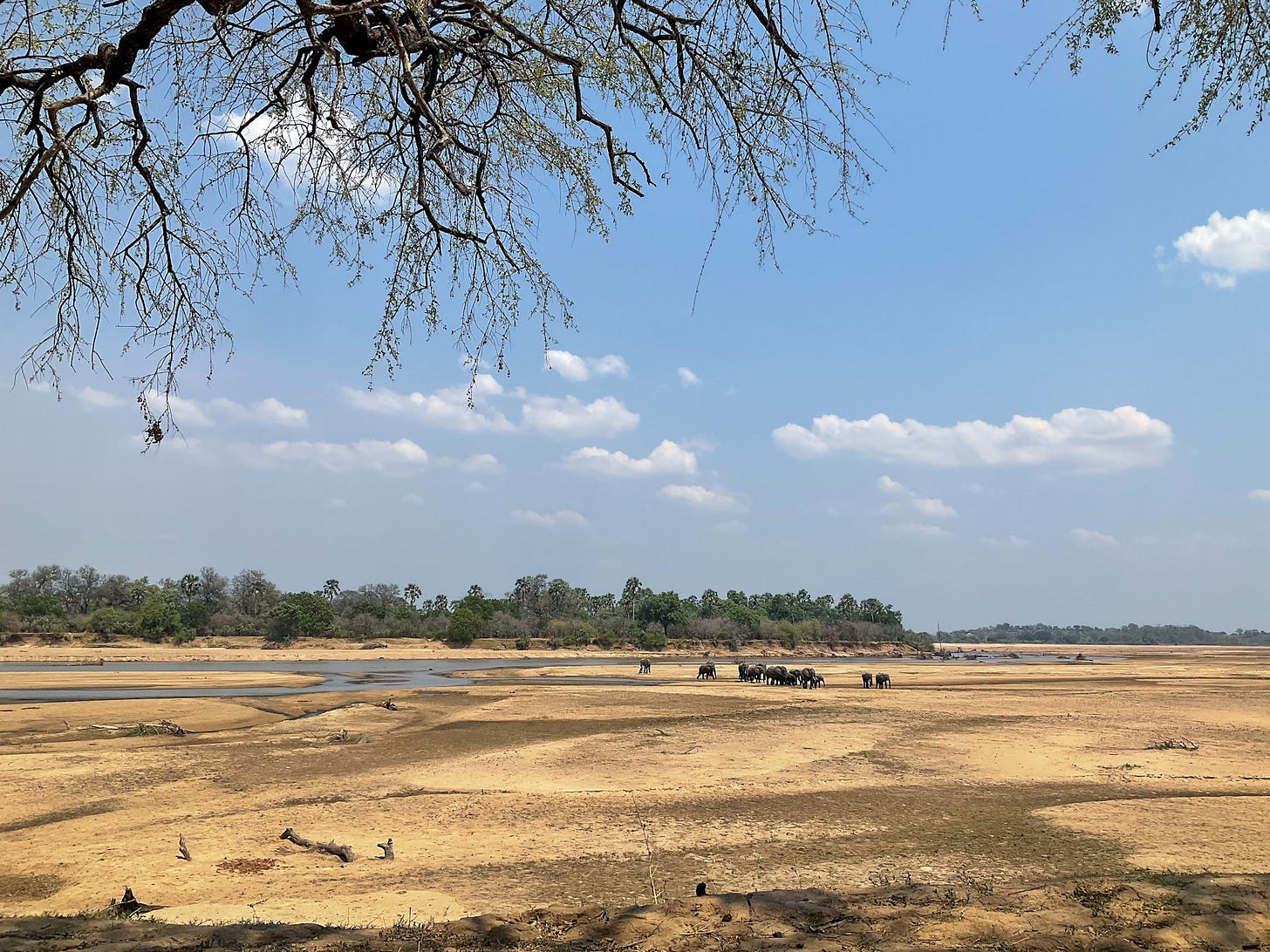Wild Camping at its Best
Zambia provides great opportunities to wild camp in the middle of nature and animals. Wild camping can provide some of the best memories from your overlanding trips.
We are flying back to Africa again tomorrow to resume our Overlanding adventure after a brief stint in our native Finland with our friends and family, and wild camping will also become a timely topic again.
So here are a few tips to enjoy this fantastic activity that brings you closer to nature.
What is Wild Camping?
If you spend the night in the wilderness outside any established (official or unofficial) campground without any amenities, it's usually classified as “wild camping.”
You won’t have a toilet, shower, or water. You have to provide yourself with all of these luxuries.
But if your vehicle has a large enough water tank, you can carry a portable shower head and a shovel and be sorted for some nights in the wild.
Wild camping can give you some of the most memorable moments on your overlanding journey.

Consider Where You Can Camp
Naturally, you cannot just wild camp anywhere. Respect the nearby, possible villages and the people. So, look for a remote place where you don’t bother anybody.
Luckily, Africa still has a lot of areas where your only companions are the wild animals.
But you have to consider the animals, too.
Don’t set up your camp in the middle of a hippo or elephant trail. These trails are fairly easy to spot in the environment.
But as you are in the middle of nature, your surroundings are full of wild animals. So always pay attention to your surroundings. You are not on a fenced campground now.
Also, being hidden from a possible nearby road is a good idea if you don’t want any unexpected visitors.
Common Wild Camp Etiquette
Your toilet is the “bush toilet.” That means you must dig a hole in the ground with your shovel whenever you need to visit the loo. And then cover it up again.
You can either take away all the waste you produce during your stay (e.g., from cooking, etc.) in a garbage bag or bury it in the ground if it’s organic waste (food). But if you bury your organic waste, please bury it deep enough. Otherwise, hyenas will dig it up.
So it’s usually a better practice to take all the garbage away with you. You can always ditch the waste in the next town you drive through.
You should leave to trace that you were ever there!
Wild Camping Essentials
Our Defender has only a 40-litre grey water tank, but with it, we have managed to wild camp for four nights in a row. This includes all water usage: cooking, dishes, and two people showering daily.
Drinking water is excluded from here. We have a 20-liter water jerry can on the roof and usually about 20-30 liters elsewhere.
A basic rule is to have 5 liters of drinking water per person per day. It’s better to have a bit too much than not enough!
Some days can get really hot, so staying adequately hydrated is essential. And if something happens and you get stranded for a while, running out of water may be disastrous.
Having a sturdy camping table and comfortable chairs is essential for relaxing and enjoying the wilderness.
A powerful solar panel keeps your vehicle’s batteries and fridge running. You can also run your engine idle daily, but it spoils the atmosphere, so take the solar panel and keep the peace around you.
We’ve had the Flexopower 150W foldable solar panel for a few years, and it’s been great. It keeps our 40-litre fridge going nicely and keeps the batteries charged.
You will also need a fridge in your car to keep all the food fresh and drinks cold. Nothing is better than popping open a cold beer, sitting back, and watching the elephants walk into the sunset! 😎
When you have your shovel, fridge, water, food, and power sorted out, all you need is your adventuring spirit.
Upgrade your subscription now and get all the extra content for 24% OFF to celebrate our return to Africa again in late September 2024! 😎 🔥
Is Wild Camping Safe?
Always use your common sense!
Generally, it’s pretty safe. But after considering the location and wild animals, you always decide for yourself.
For example, some countries are generally a bit more safe than others. While we usually don’t even consider wild camping in South Africa, we do it quite relaxedly in Zambia, Botswana, Zimbabwe, and Namibia (to mention a few).
For us, wild camping is not a way to save more money; it’s about enjoying a more profound connection with the wild.
Being alone amidst the elephants, leopards, and everyone else is always something to remember and tell intriguing stories about.
What about that awesome-looking place in the photo?
This secluded location in Zambia is…





